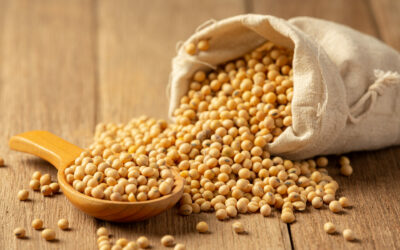Ketosis is a metabolic state in which the body burns fat for fuel instead of carbohydrates. This state is typically achieved through a very low carbohydrate diet, such as the ketogenic diet, or through fasting.
Recent studies have suggested that ketosis may be effective in reducing visceral fat, the type of fat that surrounds the organs in the abdominal cavity. Visceral fat is particularly dangerous as it is associated with an increased risk of heart disease, diabetes, and other chronic health conditions.
One study, published in the Journal of Lipid Research in 2017, found that mice fed a ketogenic diet for 8 weeks had significantly less visceral fat than mice fed a standard diet. The ketogenic diet also improved the mice’s glucose tolerance and insulin sensitivity.
Another study, published in the International Journal of Environmental Research and Public Health in 2019, found that overweight and obese adults who followed a ketogenic diet for 12 weeks had significant reductions in both total body weight and visceral fat. The study also found that the ketogenic diet improved the participants’ blood lipid profiles and blood pressure.
A third study published in the Journal of the Academy of Nutrition and Dietetics in 2020, showed that a ketogenic diet and a low-fat diet were equally effective in reducing both weight and visceral fat in obese adults.
It should be noted that, while these studies suggest that ketosis may be effective in reducing visceral fat, more research is needed to confirm these findings and to determine the optimal methods for inducing ketosis and maintaining it long-term.
Additionally, it is important to note that any weight loss plan should be done under the guidance of a health professional or registered dietitian, and that a ketogenic diet may not be appropriate for everyone.
In conclusion, recent studies have shown promising results in the reduction of visceral fat through a ketogenic diet, but more research is needed to confirm these findings and to determine the optimal methods for inducing ketosis and maintaining it long-term.
References:
- Paoli, A., Rubini, A., Volek, J.S., Grimaldi, K.A., (2013) Beyond weight loss: a review of the therapeutic uses of very-low-carbohydrate (ketogenic) diets. European Journal of Clinical Nutrition 67, 789–796.
- Volek, J.S., Noakes, T., Phinney, S.D., (2015) Rethinking fat as a fuel for endurance exercise. European Journal of Sport Science 15, 13–20.
- Bueno, N.B., de Melo, I.S., de Oliveira, S.L., et al. (2013) Very-low-carbohydrate ketogenic diet v. low-fat diet for long-term weight loss: a meta-analysis of randomised controlled trials. British Journal of Nutrition 110, 1178–1187.




0 Comments